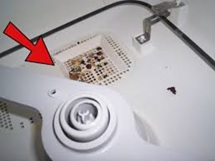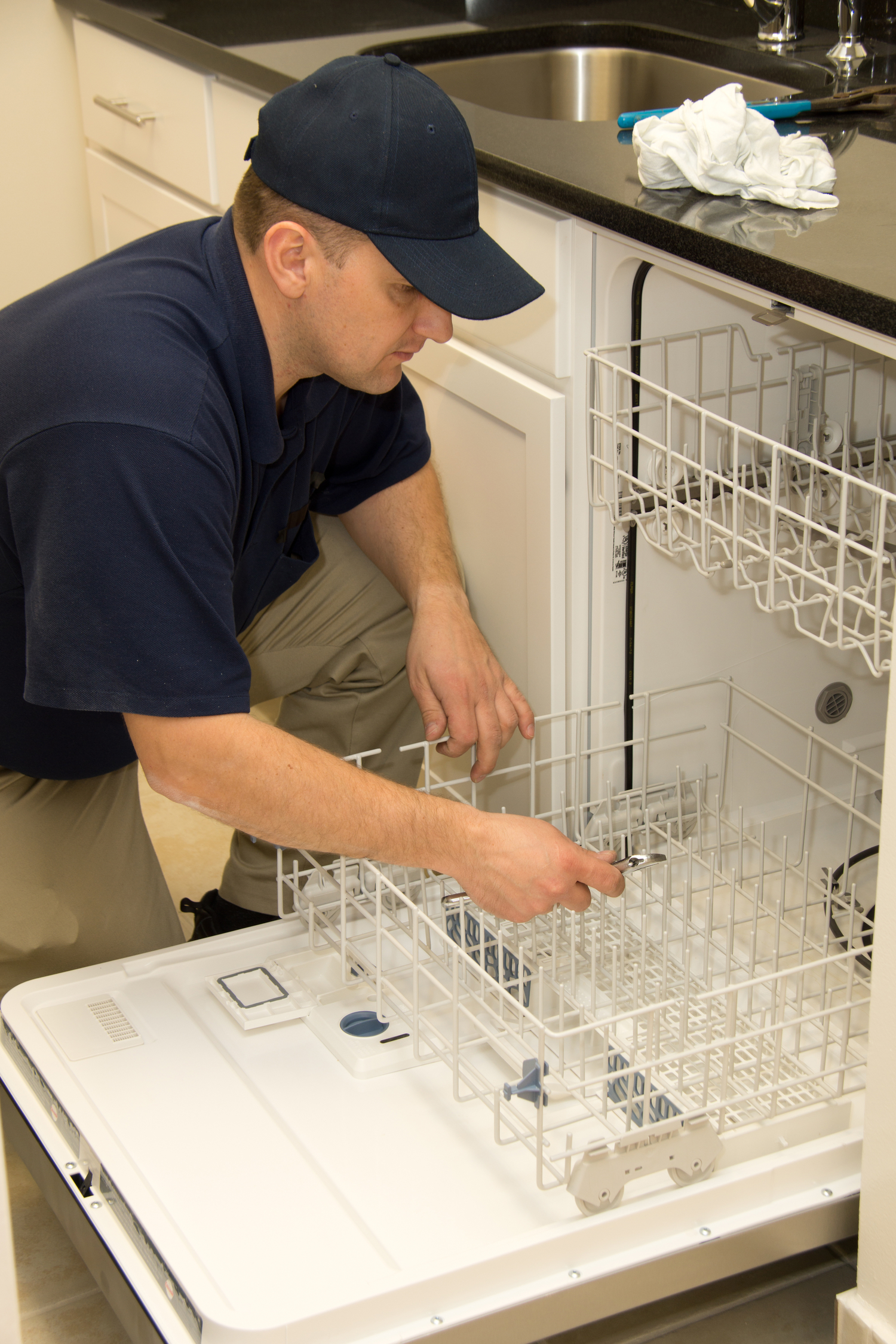You place your dirty dishes in, you add soap, you turn it on, and an hour or so later your dishes come out clean. How in the world could you have mold in your dishwasher? Your dishwasher always cleans with soap and hot water every time a cycle is run, you wouldn’t think it was possible for mold to grow inside it. But mold can, and it will, and it does.

It is reported that up to 62% of the dishwashers have mold in them. What that means is that when you grab a “clean” plate and some “clean” silverware and then you sit down to a “healthy” meal, you may just be eating mold or mold spores along with whatever you are having for dinner. What a disgusting thought!
What Causes Dishwasher Mold?
Mold has simple requirements that it needs to survive: moisture, warmth, some type of organic material, and a lack of light. Let’s examine whether your dishwasher provides these basic needs. Moisture yes, plenty of water runs through a dishwasher, you can even see steam as the dishwasher runs through its drying cycle. So that answers the warmth question. It’s always dark in your dishwasher unless you are loading or unloading it. So how about organic material?
Why do people wash their dishes? Sounds like a dumb question. That’s because after a meal there is always leftover food on dishes, silverware, and cooking pots and pans. That’s where the organics come from.
You say, “But all that stuff gets washed down the dishwasher’s drain.”Unfortunately that is not always the case. “And besides”, you say, “my dishwasher uses hot water and soap and that should kill any mold.” Hot water and soap kills most molds, but some molds have been shown to survive a dishwashing cycle. Here’s another thing that you may not know. Most dishwashing products contain a small amount of salt. And salt is something that some molds and mildews are attracted to.
Can Dishwasher Mold Make You Sick?
Of course it can. Mold exposure doesn’t just occur if you sit next to it or inhale it. Eating mold is quite possibly more dangerous. This is not blue cheese we are talking about.
The Environmental Protection Agency (EPA) reports that coming into contact with mold can make you sick. Symptoms can include sneezing, coughing, red eyes and skin rashes. These allergic reactions can be immediate or delayed.
If someone is extremely sensitive to molds, or has asthma, the reactions can be worse. These people could develop respiratory disorders in addition to the other symptoms. If a person is undergoing chemotherapy treatments or treatment for diseases like HIV/Aids, they could be at even a greater risk.
Cleaning a Moldy Dishwasher
A thorough cleaning is to simply take the time to scrub your dishwasher down, first using soap and water.
- Remove the racks and strainer around the drain (if possible) and wash them separately in the sink or a utility tub.
- Use a brush, or even a toothbrush on any rubber or plastic parts inside the dishwasher.
- Make sure to pay special attention to cleaning around the door seal, both sides of it.
- Wipe down the sides and the inside of the door.
After a good cleaning you should run a disinfecting cycle. But don’t use chlorine bleach to do this. We all know that chlorine beach works well on hard surfaces like countertops, but it can damage the internal parts of your dishwasher or possibly any metal trim. Bleach is corrosive, especially to metal surfaces. If bleach is used on stainless steel it causes fading or brownish “stains”.
Use some vinegar instead. Not only is vinegar inexpensive to use, it will kill a majority of any bacteria and molds. Vinegar is known to kill 99% of bacteria strains and 82% of mold species. The best way to use vinegar is to place one cup on the top rack and run your dishwasher on the hottest cycle possible.
How to Keep Mold Away
One of the best ways to prevent mold from growing in your dishwasher is to leave the dishwasher door open when it is not in use. That doesn’t mean you have to leave it fully open, just crack the door slightly. Wedge it open a little if you have to. This will allow some light and a little air movement into the dishwasher. Mold is not overly fond of light or air movement. You should also plan on cleaning your dishwasher at least once a month.
Keeping your dishwasher and all of its associated parts clean will help extend the life of the machine. Keeping the drain strainer clean and free of food debris will keep the drain running freely and keep the machine from filling up with water, which could then leak out around the door seals and onto your floor.
If You Need Help For Mold Problems
If you suspect or discover mold in your dishwasher or anywhere else throughout your home, a handyman is not who you should turn to for help. Remember, mold can be dangerous and not just to you. It can affect other family members and even pets. If you come across mold you will need the services of a certified mold remediation specialist. Any time you find mold in your home, you should contact Water Mold Fire Restoration at 800-905-0277 immediately. If left to its own, a mold problem won’t go away, it will only get worse. You need to take action. We have certified mold remediation teams standing by, 24/7, that will assess any damage and design a plan to eliminate any mold from your home. You can ask also us any questions you may have about mold and what it takes to safely remove it by email at help@watermoldfire.net.








